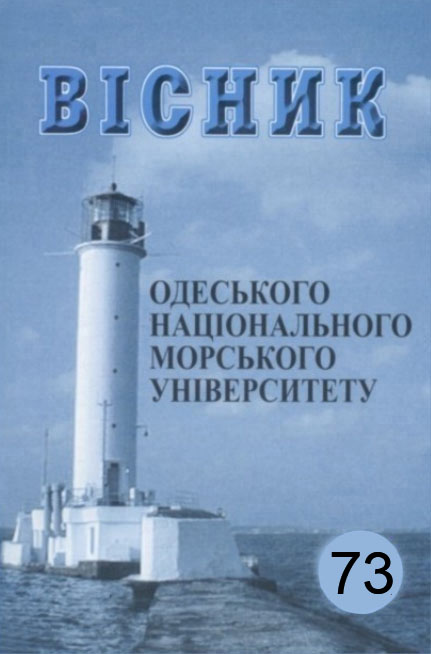Ship's design quality as a efficiency criterion
Main Article Content
Abstract
The issues of assessing the efficiency of a ship as an element of the transportation system are considered. It is shown that a shipowner must have a reliable tool for making the right decisions (assessments) at the stage of considering a ship proposal or design to minimize the risks of making unsuccessful commercial decisions. The authors propose a relative criterion of project efficiency and ways to determine it for an existing vessel and for a ship project. In addition, the procedure for constructing a rank criterion of project efficiency, which in the article depends on the weight of the empty vessel and the desired characteristics of the propeller hull, is considered. The considered criteria are applied to analyze the quality of existing Panamax bulk carriers.
Article Details
References
2. Nekrasov V.A., Kabanova N.N. The problem of the functioning of a vessel operating on unsecured lines of transportation, in the problem of its design // NUK // Collections of scientific work of the NUK, No. 6 (423), 2008. Р. 35-40.
3. Kabanova N.N. Solving the stochastic task of optimizing the characteristics of a tramp ship // Vestnik ONMU. No. 34. 2012. Р. 172-183.
4. Aldo A. McLean, William E. Biles «A simulation approach to the evaluation of operational cost sand performance in liner shipping operations», WSC '08 Proceedings of the 40th Conference on Winter Simulation. Miami. Florida. December 07-10. 2008. Winter Simulation Conference © 2008. P. 2577-2584.
5. Jasper Faber, Maarten’t Hoen, Robert Vergeer, John Calleya «Historical Trends in Ship Design Efficiency, The Impact of Hull Form on Efficiency», Report, Delft, CE Delft, March 2016, Publication code: 16.7H27.23, 55 p.
6. «Improving Energy Efficiency of Ship sthrough Optimisation of Ship Operations», IAMU 2014 Research Project (No. 20140301), Istanbul Technical University (ITU), Published by the International Association of Maritime Universities (IAMU) Secretariat, Toranomon 35 Mori Building 7F, 3-4-10, Minato-ku, Tokyo 105-0001, Japan.
7. Каi Wang, Xinping Yan, Yupeng Yuan, Feng Li «Real-time optimization of ship energy efficiency based on the prediction technology of working condi- tion», Natio-nal Engineering Research Center for Water Transport Safety, Wuhan University of Technology, Wuhan, Hubei 430063, China, Transporta- tion Research. Part D 46. 2016. Р. 81-93.
8. Demidiuk O., Kosoy M., & Zaiets A. (2023). Determining basic characteris- tics of bulk carriers at the early stages of design // Eastern-European Journal of Enterprise Technologies, 6(1 (126). Р. 68-77.
9. VolkerBertram, H. Schneekluth «Ship design for efficiency an deconomy», 2-nd Edition, Вutterworth-Нeinemann, 1998. 224 p.
10. Lokukaluge P. Perera, Brage Moand Leifur A. Kristjánsson «Identification of Optimal Trim Configurations to improve Energy Efficiency in Ships». Nor- wegian Marine Technology Research Institute (MARINTEK), Trondheim. Denmark. August, 2015, Р. 267-272. In Proceedings of the 10th IFAC Confe- rence on Manoeuvring and Control of Marine Craft (MCMC2015), Copen- hagen.
